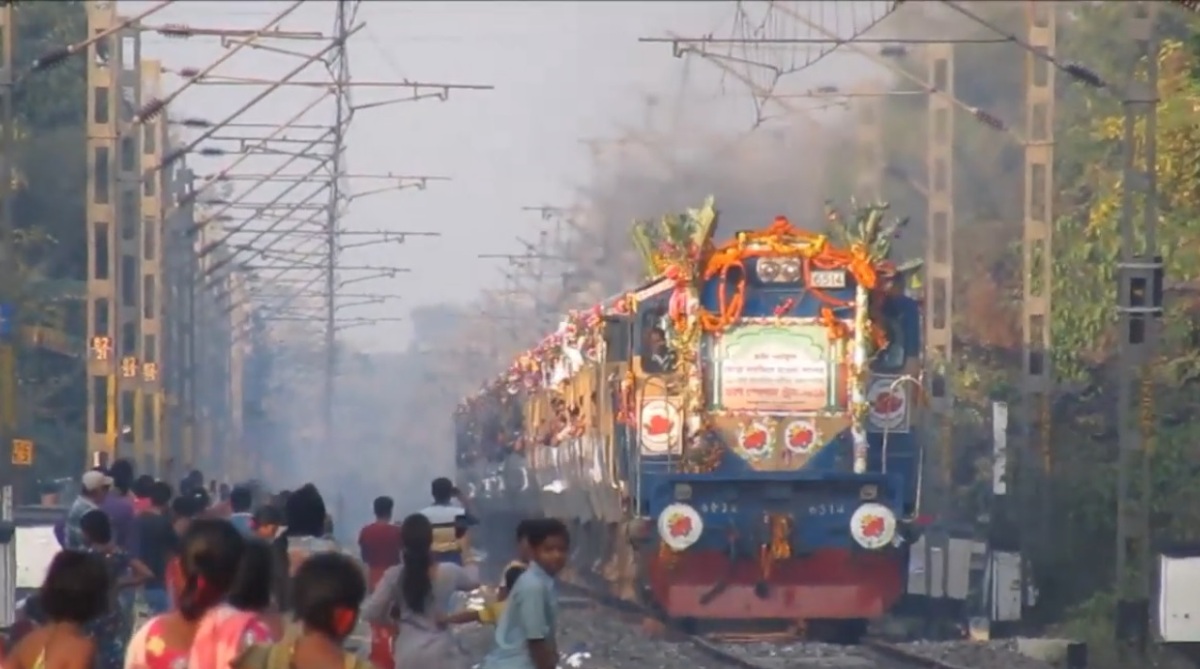Tight security ahead of 13 Nov bypoll in Midnapore
With the Midnapore Assembly by-election on 13 November, district authorities have significantly ramped up security measures, aiming to ensure a peaceful and orderly voting process.
The Urs Special Train has been relatively little known even though it holds a very important place in the hearts of all the pilgrims who board it and the shared history of the two nations.

(Photo: YouTube/Surajit Singha)
On the morning of 17 February, a train chugged into India from across the border with Bangladesh ensuring the continuation of a long history of religious harmony between the two nations. But the train was not the Maitree Express.
Carrying 2255 pilgrims, the Indo-Bangladesh Urs Special Train arrived at Midnapore railway station in West Bengal from Rajbari in Bangladesh.
Advertisement
The pilgrims are here for the annual congregation for all faiths held in Midnapore every year. The train itself has been making the trip every year since 1902, barring a few instances.
Advertisement
Unlike the Maitree Express, which runs between Dhaka and Kolkata, the Urs Special Train has been relatively little known even though it holds a very important place in the hearts of all the pilgrims who board it and the shared history of the two nations.
In its 117-year history, the Urs Special train was cancelled only four times – 1965, 1971, 1992 and 1994. While the first two cancellations were due to the Indo-Pak wars, the 1992 cancellation came after the Babri Masjid demolition. The train did not come to India in 1994 because of the fear of plague outbreak.
And while the Dhaka-Kolkata rail service remained suspended for 43 years after the 1965 Indo-Pak war, the Urs Special service resumed in 1966.
Why is the train religiously significant?
The pilgrims are followers of Midnapore Boro Huzur, a descendant of Quaderia order pioneer in Bengal Abdul Quadir Jilani.
An Iraqi, Jilani had come in India in the 19th century to preach Islam. Devotees of Boro Huzur believe that his disciple Midnapore (the name of the person) came from Rajbari on 17 February 1901.
While the Muslims call Midnapore Boro Huzur, the Hindus devotees call him Guru Dev. They, too, like the Muslim Bangladeshi, make the trip from Rajbari.
Bangladesh’s Anjuman-e-Quadria Committee manages the trip.
According to Bangladeshi media reports, the pilgrims are selected by lottery and their papers sent for visas to the Indian High Commission in Bangladesh.
The trip starts the journey every year on 15 February from Rajbari and stops at Darshana in Bangladesh, Gede and Rana Ghat in India before reaching Midnapore.
The train, which has 24 carriages, returns to Rajbari four days after leaving for India.
Advertisement